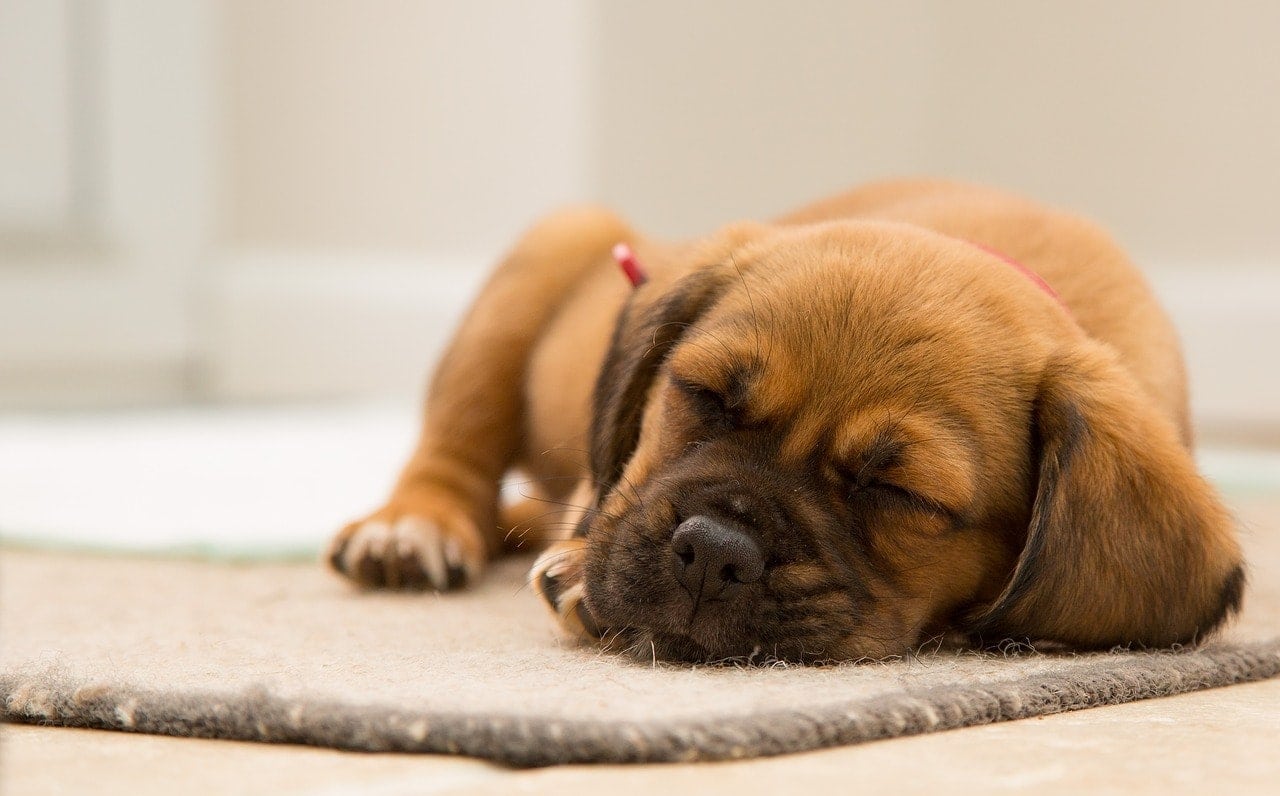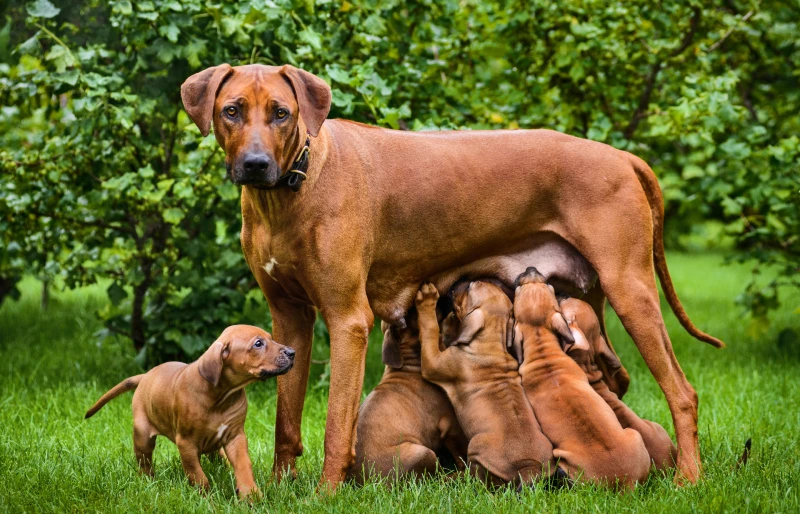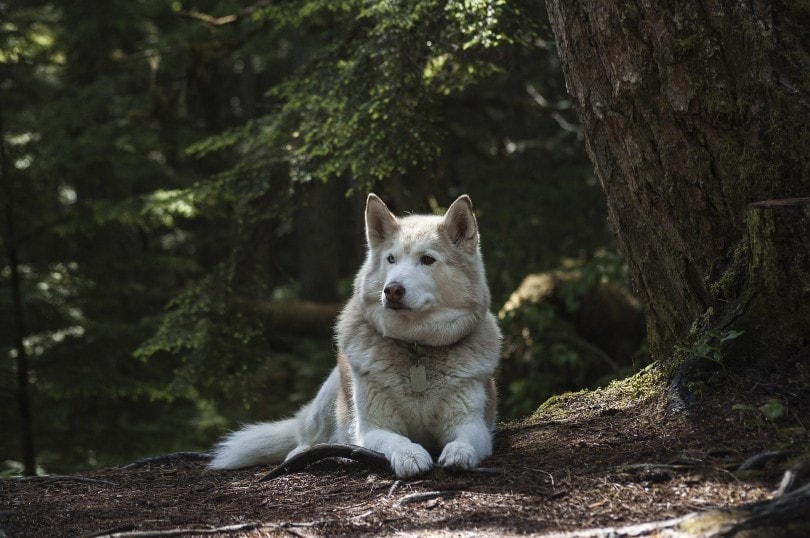Why Is My Puppy Breathing So Fast When Sleeping? Vet-Approved Respiratory Rate & Facts
Updated on

Puppies have a way of keeping their owners on their toes. Your puppy is probably rarely out of your sight, as you monitor it 24/7 to make sure it’s safe and healthy.
Puppies play hard and sleep harder. If you’ve ever stared lovingly at your puppy while it naps (and let’s be honest, who hasn’t?), you may have noticed them breathe fast. While this behavior can be alarming, it’s completely normal. Sleeping puppies can breathe faster when they dream. Puppies that are dreaming may also make noises and move their legs or tails. Their breathing returns to normal in a few minutes or if you wake them up.
Fast breathing while awake and sedentary, however, can be a cause for concern. Learn how to monitor your puppy’s breathing, what is considered normal breathing, and when to call a vet.
What Is a Normal Respiratory Rate for Puppies?
“Fast” is a relative and subjective term. It’s not necessarily concerning if your new puppy breathes faster than your older dog while sleeping for example
An objective way to measure your puppy’s breathing is its respiratory rate, which is the number of breaths they take per minute. It is helpful for your vet to know your puppy’s respiratory rate whilst awake and asleep if you are concerned about its breathing.
When you watch your puppy, you’ll notice that its chest rises with each inhale and falls with each exhale. To measure your puppy’s respiratory rate, count each rise. You can monitor their breathing for 30 seconds, then multiply that number by two. Or you can count breaths for a full minute.
Most healthy dogs have respiratory rates between 10 and 30 breaths per minute. Your puppy may breathe faster than this when playing, for a few minutes after being active, and while sleeping.
Newborn puppies for the first two weeks will have a breathing rate of 15–36 breaths per minute 1. For the next 2 weeks 16–32 breaths per minute and after that they settle into the adult breathing rate.

When to Call Your Vet
Signs that your puppy may have an underlying health condition include fast breathing (tachypnoea) accompanied by lethargy, poor appetite, diarrhea, vomiting, and coughing. Labored breathing or dyspnoea, is difficulty in breathing and includes increased effort to breath. Schedule a vet appointment right away if your puppy shows any of these signs.
- Fast breathing alone should not be confused with labored or difficult breathing but the two can be present at the same time.
- Puppies that are struggling to breathe may stretch their necks and stand with their front legs further apart.
- Their gums may be gray, blue, or purple instead of pink.
- Dogs that are struggling to breathe may also have fluid dripping from their nose or mouth.
Labored breathing is a medical emergency. Bring your puppy to the nearest vet clinic or animal hospital if it struggles to breathe.
Conclusion
Seeing your puppy breathing fast while sleeping can be alarming but is rarely cause for concern. A healthy puppy over 4 weeks of age will take between 10 and 30 breaths per minute. However, some sleeping puppies can breathe faster while they are dreaming. Their respiration rates return to normal after a few minutes or upon awakening.
Featured Image Credit to: Pixabay














